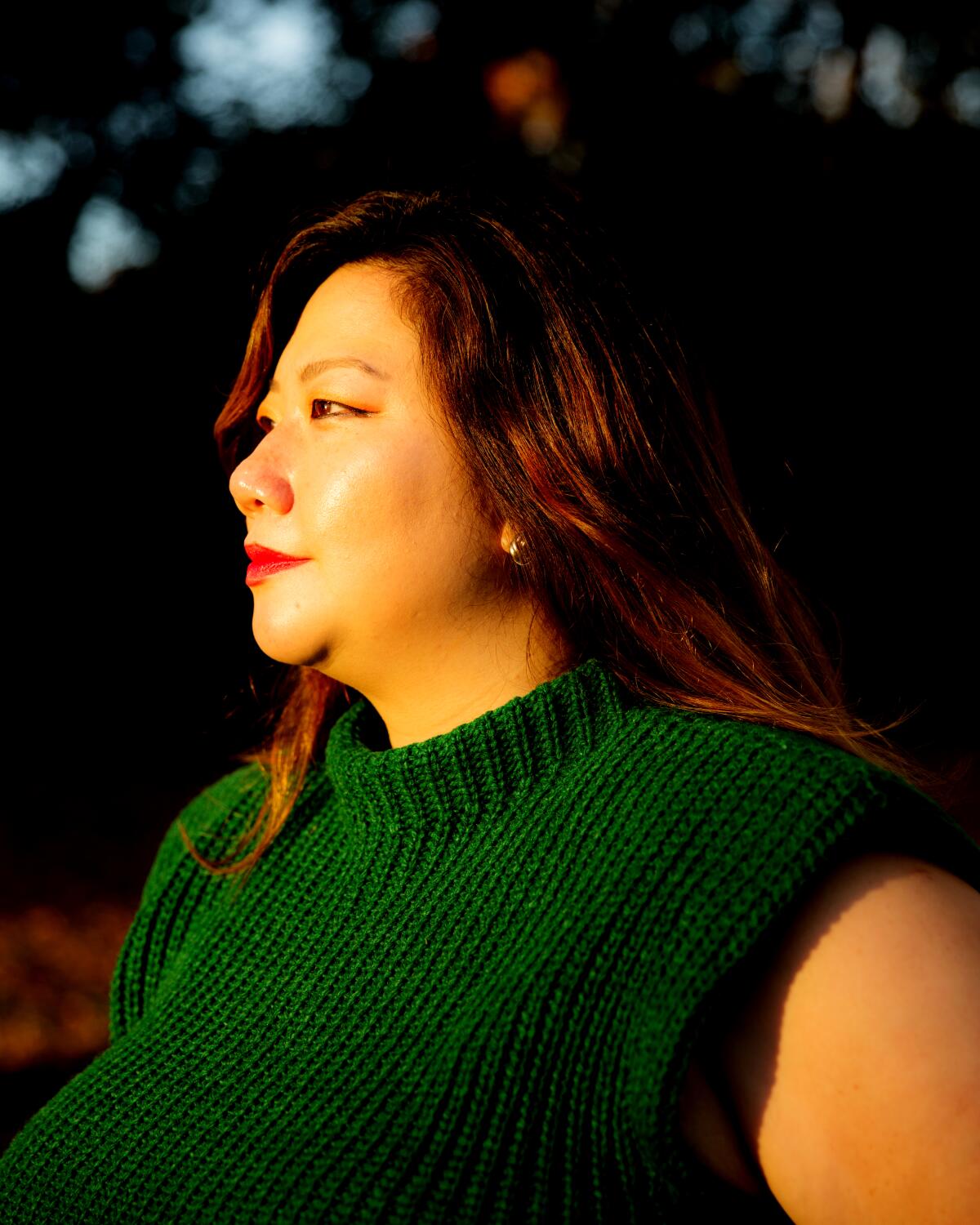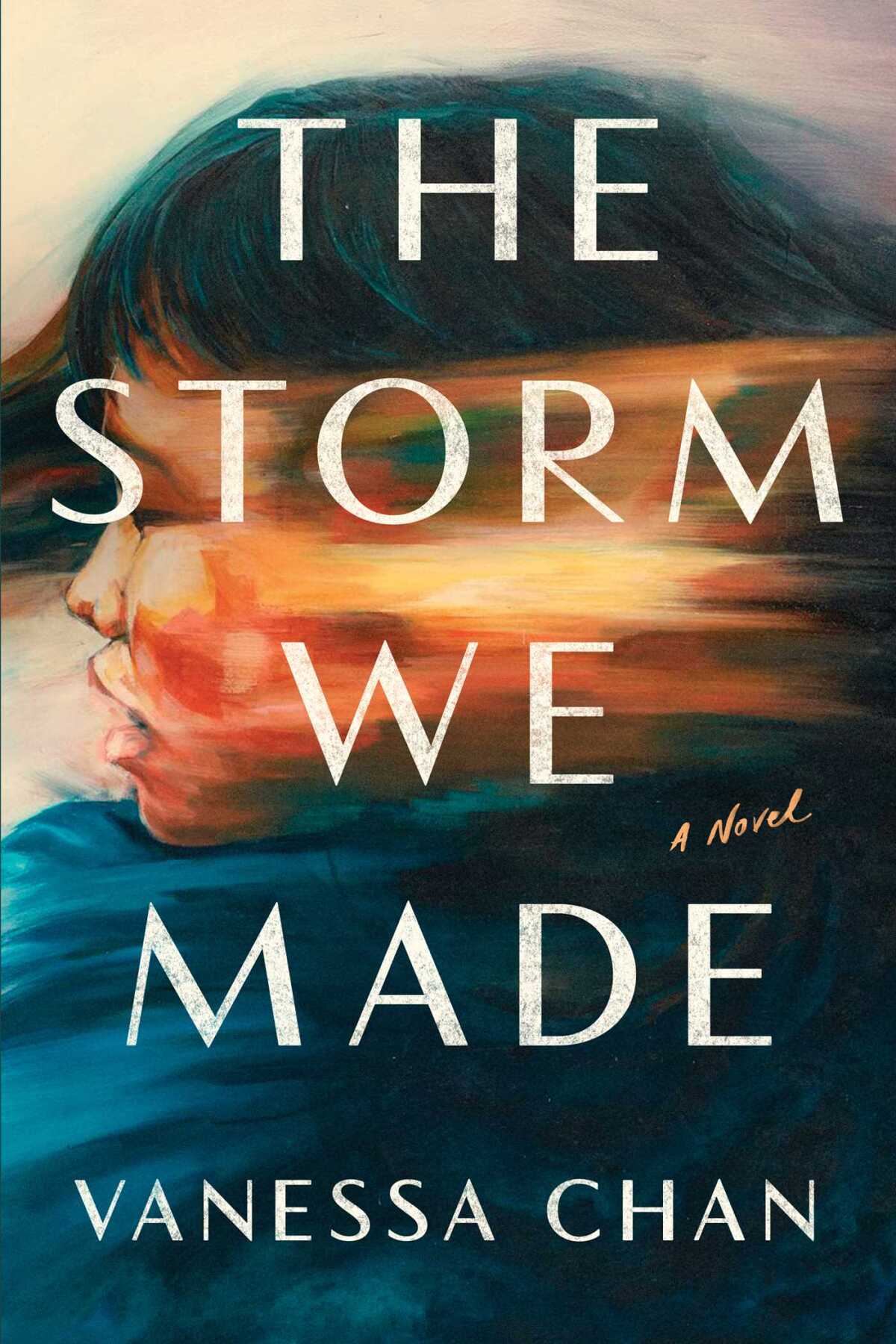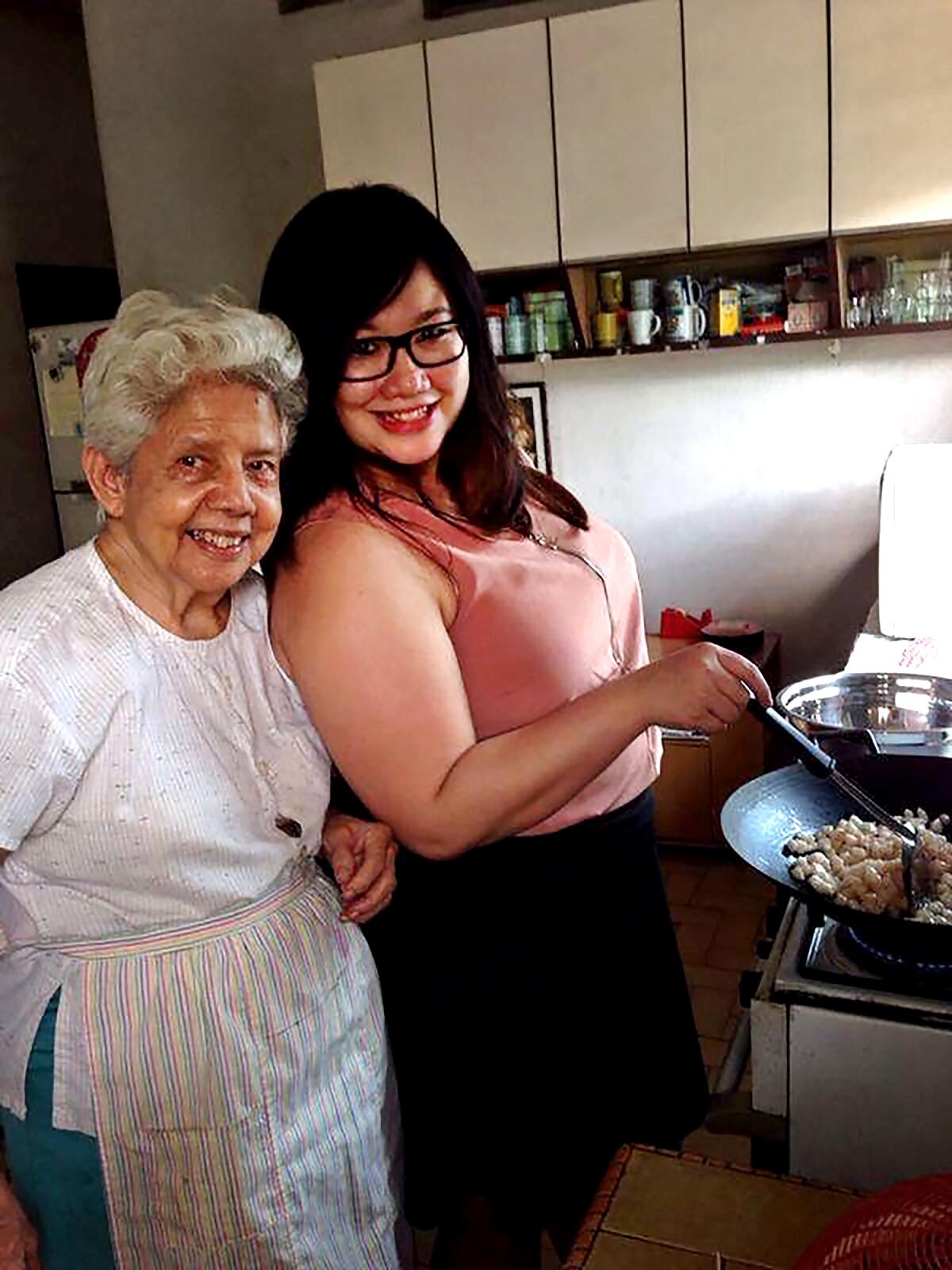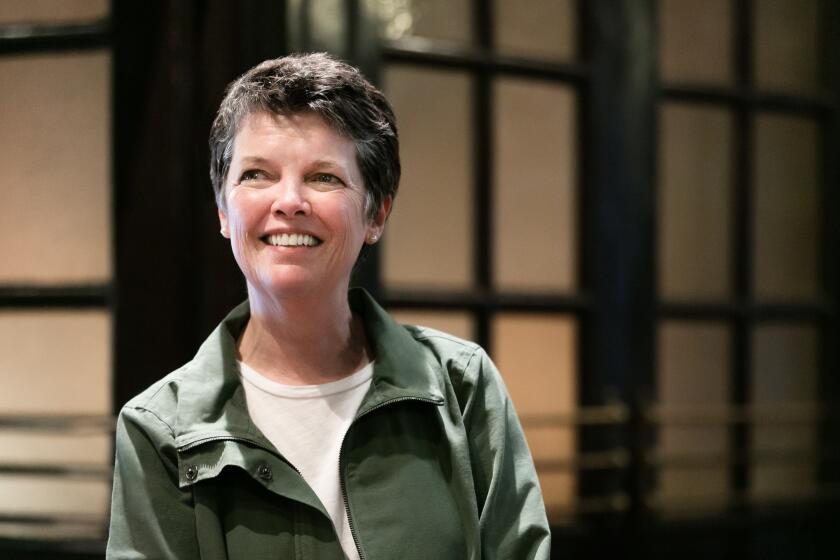Why one of Facebook’s few female execs left to write a gritty Malaysian World War II novel

- Share via
On the Shelf
The Storm We Made
By Vanessa Chan
Marysue Rucci: 352 pages, $27
If you buy books linked on our site, The Times may earn a commission from Bookshop.org, whose fees support independent bookstores.
Picture a historical novel set on the Malay Peninsula during the 1940s. What comes to mind? Warm breezes, palm trees, gin-swilling colonists in white suits. World War II sweeps in, and with it, geopolitical drama — a backdrop for Hemingway-esque bravery or Graham Greene-style romance and treachery. The stuff of epics, spy stories and postcolonial tragedies.
Vanessa Chan’s debut novel, “The Storm We Made,” delivers all of these. But it also offers plenty of grit, and its author is here to remind you that Malaysia is — among other things — humid as hell, and it does a number on your body.
“Even before I wrote this book, my writing was recognizable for its bodily concerns,” says Chan, speaking from her home in Brooklyn via video conference. “Everyone emits fluid. That’s just who we are as humans. No matter how we clean ourselves up. … If my characters are living through a war in a very hot and challenged country, their bodily concerns are going to be exacerbated.”
The heart of Chan’s novel is a trio of siblings — Jujube, Abel and Jasmin Alcantara; in the sections of the book set in 1945, near the end of the Japanese occupation, they are 17, 15 and 8. They sweat and bleed and evacuate, along with their parents, Cecily and Gordon. “I think some of what readers might call grittiness is just some of what you feel while walking the world with these characters,” Chan says.
Alice McDermott has long chronicled the struggles of Irish Americans. Her ninth novel, ‘Absolution,’ recounts the Vietnam War from a new perspective.
Cecily emerges quickly as the main character; flashbacks to 1937 have her spying for the Japanese out of an idealism fueled by passion for a charming interloper. She is also our conduit to what Chan calls “the somewhat broader machinations of the war.” But the children, who were present from the very first draft, represent the real stakes. “At the end of the day,” she says. “The book is about a family living through their daily minutiae, with a harsh backdrop.”

As corporeal as these figures are, they are not described in overworked detail. “I didn’t want to do that cheap thing,” says Chan, “when a writer has a character look in a mirror and describe themselves. ... Many of my characters are obsessed with the way everybody else looks. But the slow build of knowing what they look like helps you feel what they feel.”
In part, Chan says, this is meant to help readers see these characters as human before they see them as Asian.
“Vanessa’s perspective comes from a long tradition of taking back the gaze,” says author Mira Jacob, Chan’s friend and former teacher, “of seeing ourselves as more than figments of a white imagination.”
After the invading Japanese force out the British — which Cicely cheers and then grows to dread — both the perpetrators and victims of violence and exploitation are nonwhite. There is plenty of class and ethnic conflict, but the focus is on individual tensions: family ties are broken and betrayed, how love can rot into resentment, guilt and shame.
“A lot of people ask me if this book is important — if I want it to be a cornerstone of history,” Chan says. “I’m never so arrogant as to say yes, because I am not a historian. I’m a storyteller. I do think I want people to see these characters as real people, not as caricatures or as a backdrop to war.”
Three contributing critics pick their best fiction of the year, including work by Victor LaValle, Ed Park, Lauren Groff, Yiyun Li and Tania James.
Chan grew up in Malaysia before coming to the United States for college at UC Berkeley. Rendering the world of her childhood in fiction was not her original plan. She went into public relations, eventually spending six years as Facebook‘s director of communications. Then she grew tired of working for too many tech bros.
“I was once in a meeting,” she recalls, “with four men named Dave, three men named Mark, three or four named Mike, then me and Sheryl Sandberg” — Facebook’s chief operating officer at the time. In 2019, Chan decided to move across the country to New York City to pursue an MFA in creative writing at the New School. She left before completing the degree as a result of the pandemic, but her course was set.

Chan’s path from tech to writing isn’t unique, but given the vast pay gap between the professions, many writers decide to keep one foot in Silicon Valley. For Chan, only a clean break would do.
“While I can multitask in my life and as a PR professional, I cannot multitask creatively,” she says. “Learning how to write while doing only writing was the only way for me.” The move also made sense because at school, “you have a built-in community. Some of my best friends now are people I met during my time in the MFA program, and some have become mentors, like Mira Jacob and Alexandra Kleeman.”
“Vanessa came into my fiction workshop with stories I hadn’t seen before, in terms of time and place,” says Jacob. “I saw my role as helping her access the depth of those stories, countering a culture that often tells writers of color to keep our stories small and digestible.”
During her time as a writing student, Chan says, “I thought I was a short-story writer. I didn’t know I could write a novel.” (Her first short-story collection, “The Ugliest Babies in the World,” will be released in a year or two). The inspiration for long-form writing, and for the story at the heart of her novel, came from her paternal grandmother.
‘Something New Under the Sun,’ Alexandra Kleeman’s astounding second novel, features a child star, an eco-cult and a sinister substance called WAT-R.
“As she grew older, my grandmother started to write down her memories, not just those from the war, but about her childhood too,” Chan says. “She put them in her memory book, which she said was different from a journal or diary, because it was meant for public consumption.” The author laughs. “’There’s nothing salacious in there,’ she would say. ‘It’s just facts.’ So I was allowed to read it.”
Her grandmother was “pretty chatty,” Chan adds, and over the years she shared practical details that worked their way into the book: How to survive in an airstrike, why Malaysians wore slippers throughout the conflict (shoelaces were hard to come by), how a neighbor known only as Mr. F. gave everyone secret tango lessons after curfew.
“All these beautiful and often tragic stories,” says Chan. As she explains in an author’s note at the beginning of “The Storm We Made,” many Malaysians of her grandparents’ generation “never really wanted to talk about this stuff directly. They found it traumatic.” She pauses. “I understand that, because I think it’s the same with us today. People ask, ‘What did you do in the pandemic?’ and we’re like, ‘Leave me alone. I don’t want to talk about it.’”
Chan, however, feels compelled to talk about the pandemic, because it’s when she finished her first novel.
“All of us were living through such terrible times and horrible grief,” she says. “My mother died. My uncle died. And I couldn’t leave. I was stuck in this apartment in New York City, and it felt contradictory and tragic to be writing about home when I was not able to go home.”
In fact, the writing she accomplished during the pandemic brought her closer to a home than she’d ever expected.
Patrick is a freelance critic, podcaster and author of the memoir “Life B.”
More to Read
Sign up for our Book Club newsletter
Get the latest news, events and more from the Los Angeles Times Book Club, and help us get L.A. reading and talking.
You may occasionally receive promotional content from the Los Angeles Times.










